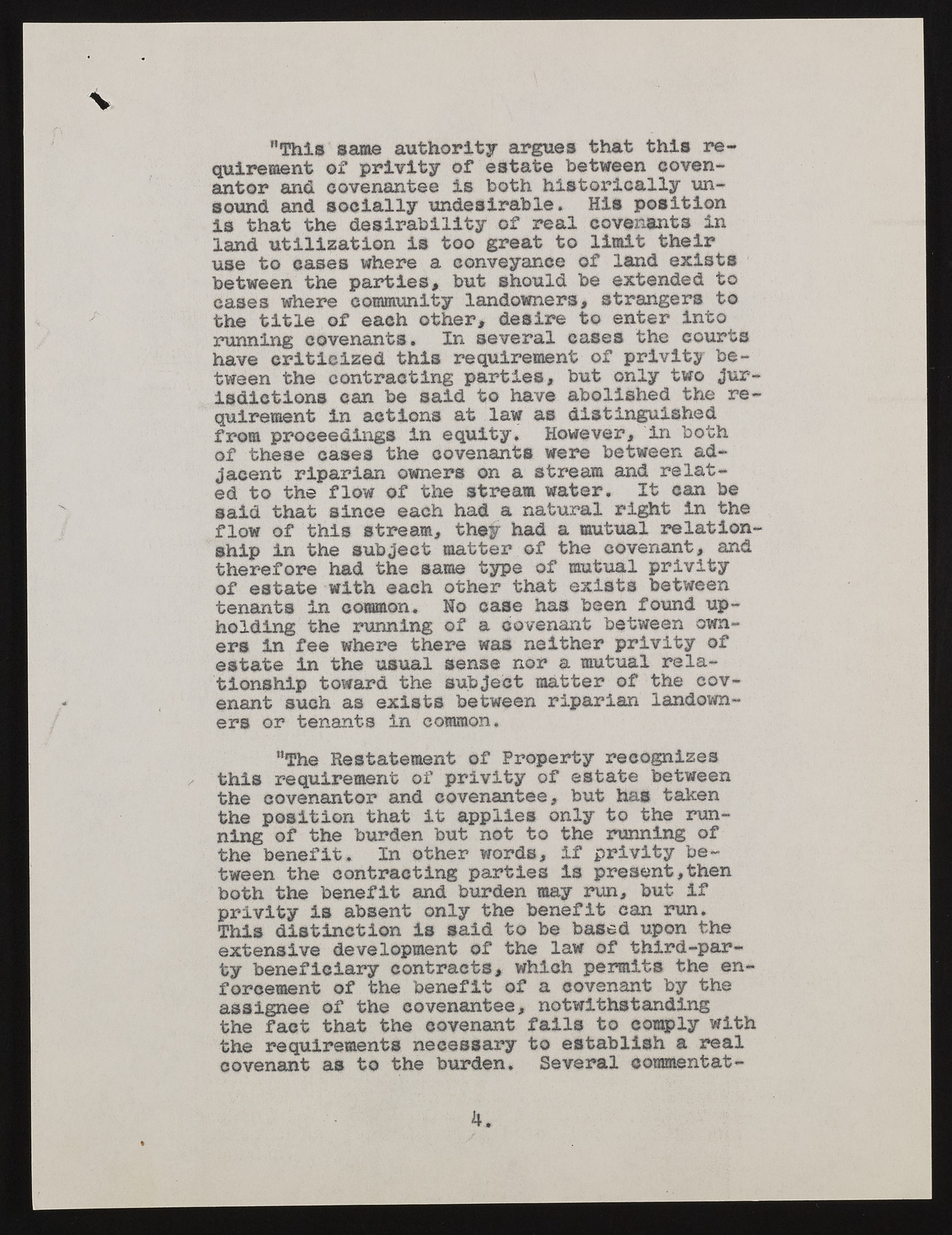Copyright & Fair-use Agreement
UNLV Special Collections provides copies of materials to facilitate private study, scholarship, or research. Material not in the public domain may be used according to fair use of copyrighted materials as defined by copyright law. Please cite us.
Please note that UNLV may not own the copyright to these materials and cannot provide permission to publish or distribute materials when UNLV is not the copyright holder. The user is solely responsible for determining the copyright status of materials and obtaining permission to use material from the copyright holder and for determining whether any permissions relating to any other rights are necessary for the intended use, and for obtaining all required permissions beyond that allowed by fair use.
Read more about our reproduction and use policy.
I agree.Information
Digital ID
Permalink
Details
More Info
Rights
Digital Provenance
Publisher
Transcription
V "This same authority argues that this requirement of privity of estate between covenantor and covenantee is both historically unsound and socially undesirable. His position is that the desirability of real covenants in land utilization is too great to limit their use to cases where a conveyance of land exists between the parties, but should be extended to cases where community landowners, strangers to the title of each other, desire to enter into running covenants. In several cases the courts have criticized this requirement of privity between the contracting parties, but only two Jurisdictions can be said to have abolished the requirement in actions at law as distinguished from proceedings In equity. However, in both of these cases the covenants were between adjacent riparian owners on a stream and related to the flow of the stream water. It can be said that since each had a natural right in the flow of this stream, they had a mutual relationship in the subject matter of the covenant, and therefore had the same type of mutual privity of estate with each other that exists between tenants in common. No case has been found upholding the running of a covenant between owners in fee where there was neither privity of estate in the usual sense nor a mutual relationship toward the subject matter of the covenant such as exists between riparian landowners or tenants in common, MThe Restatement of Property recognizes this requirement of privity of estate between the covenantor and covenantee, but has taken the position that it applies only to the running of the burden but not to the running of the benefit. In other words, If privity between the contracting parties is present,then both the benefit and burden may run, but if privity is absent only the benefit can run. This distinction is said to be based upon the extensive development of the law of third-party beneficiary contracts, which permits the enforcement of the benefit of a covenant by the assignee of the covenantee, notwithstanding the fact that the covenant falls to comply with the requirements necessary to establish a real covenant as to the burden. Several commentat- 4.

